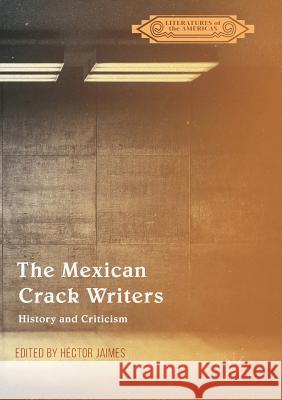The Mexican Crack Writers: History and Criticism » książka
topmenu
The Mexican Crack Writers: History and Criticism
ISBN-13: 9783319873763 / Angielski / Miękka / 2018 / 210 str.
The Mexican Crack Writers: History and Criticism
ISBN-13: 9783319873763 / Angielski / Miękka / 2018 / 210 str.
cena 382,84 zł
(netto: 364,61 VAT: 5%)
Najniższa cena z 30 dni: 383,73 zł
(netto: 364,61 VAT: 5%)
Najniższa cena z 30 dni: 383,73 zł
Termin realizacji zamówienia:
ok. 20 dni roboczych.
ok. 20 dni roboczych.
Darmowa dostawa!
Kategorie:
Kategorie BISAC:
Wydawca:
Palgrave MacMillan
Seria wydawnicza:
Język:
Angielski
ISBN-13:
9783319873763
Rok wydania:
2018
Wydanie:
Softcover Repri
Ilość stron:
210
Waga:
0.27 kg
Wymiary:
21.01 x 14.81 x 1.19
Oprawa:
Miękka
Wolumenów:
01
Dodatkowe informacje:
Wydanie ilustrowane











